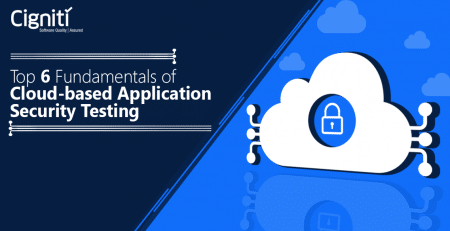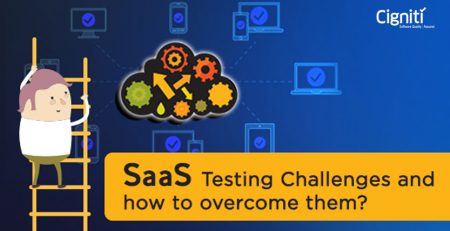The Challenges of Testing in a Cloud Computing Environment
Cloud Services, as the experts say, are here to take enterprises from the Industrial era to the era of Information Accessibility.
What could be the most apparent instances of operating in a Cloud-based environment?
- Updating your Mobile Applications on the go
- Mailing / accessing some work documents outside your office premises
- Updating your Facebook & WhatsApp status while commuting
- Accessing your bank accounts and making transactions while you travel
These and many more benefits are today enabling small, medium, and large enterprises to solve small as well as big challenges to reach their highest potential.
Additionally, there are some evident reasons why big and small enterprises across the world are moving to the Cloud. Namely, higher efficiency, flexibility, disaster management / recovery, easy updates/upgrades, better collaboration, anywhere/anytime access, competitive edge; additionally, it also encourages to make the work environment more eco-friendly.
Sig Nag, research director at Gartner aptly states, “The market for public cloud services is continuing to demonstrate high rates of growth across all markets and Gartner expects this to continue through 2017”. With the trending growth of start-ups globally, there is a rising need to cut down infrastructure costs, faster time-to-market, and achieve higher ROI. These are amongst the most prominent reasons for the increasing popularity of Cloud services globally.
According to a recent Gartner report, Worldwide Public Cloud Services Market is estimated to reach $204 Billion in 2016. The highest growth will come from cloud system infrastructure services, which is projected to grow by 38.4 percent in 2016.
There is rising trend amongst enterprises today to adopt a digital business strategy, as the focus is shifting from redundant IT systems to a cloud-based environment.
Market reports estimate that as many as 90% of the organizations in UK are implementing Cloud-based services to meet their specific business objectives.
At the same time, the Cloud Computing environment poses a set of challenges, which organizations have to deal with. While this article intends to deliberate on the testing challenges in the Cloud Computing environment, it is imperative to get a quick grab on the challenges that the Cloud poses.
Mentioned below are some highlights:
- Security Aspects: While the Cloud environment offers you a ready back-up and a robust disaster recovery plan, there has been a persistent concern over the security aspects of hosting your data on the Cloud. It ranks amongst the most prominent concerns mentioned by users, as an essential chunk of services are outsourced. This results in risks like data integrity and availability of services.
- ROI Estimation: In spite of the fact that Cloud ensures higher ROI, there is a concern amongst business folks about the commercial viability or business outcome of Cloud adoption. Nevertheless, this aspect can be addressed by mapping the same with the organization’s objectives of adopting Cloud services.
- Quality of Service: Considering specific services on the Cloud are outsourced to third parties, businesses are sceptical about moving business critical application to the Cloud. There are concerns pertaining to factors like availability, accessibility, performance, and scalability.
- Performance Related Issues: There is a concern regarding the network bandwidth offered by Cloud services. This may negatively impact execution and delivery of complex application, as Cloud applications still continue to be bandwidth intensive.
- Integration Related Concerns: Some applications in production need to integrate / connect with other Cloud applications, which could be on-premise. For instance, applications that are currently operating with existing data structures. There is uncertainty amongst businesses regarding the interoperability of these applications hosted on the Cloud.
While robust testing frameworks and strategies help enterprises get the most of their investment in the Cloud, there are a set of challenges related to testing on the Cloud. The foremost factor to focus on while testing is to ensure that the specific functional requirements are addressed. Let’s take a quick view of the 2 fundamental aspects of testing in the Cloud environment.
- Functional Testing: With this you can evaluate and ensure that you are getting value for your buck. It further confirms that the business requirements are met. Functional tests such as System Verification testing, Acceptance testing, and Interoperability testing ensure that the business requirements are being met.
- Non-Functional Testing: The Non-functional testing approach focuses on web application based tests that help ensure that all the expected outcomes are met. Some key areas of non-functional testing are: Accessibility, Performance, Security, Recovery, and Scalability tests.
Challenges of working in the Cloud environment intersect with the challenges of testing applications on the Cloud. The reason being, it entails testing applications across various modules and environments to identify issues.
The recommended way out is to utilize test services that operate on the Cloud, which provide the required environment for testing.
Depending on the Cloud for performance and all the possible boons is a choice that enterprises are making consciously. Drilling down, let’s focus on comprehending the testing challenges in order to address them effectively.
- Developing the environment: There is a need for specific configurations for testing purposes, for instance, related to servers, storage, or network. This leads to issues during testing, as it is a challenge to emulate the specific customer scenario / environment in the Cloud environment.
- Interaction between components: Another challenge that is commonly faced is during integration testing, where the tests are conducted on the network, database, servers, and various devices. When the applications are hosted on the Cloud, testers have inadequate control on the environment. This further amplifies when there is an interaction between all the components, where there could be risks pertaining to crash, breakdown of the network or crashing of the servers.
- Replicating the user environment: The business applications to be tested are installed in an environment that is not under the control of the tester. The tester is expected to test the applications in a scenario where the user would operate. This poses a challenge for the testers to create a similar environment for testing purposes.
- Testing on the Internet: There are a lot of security concerns while testing on the internet. The tester has to ensure that there is no leakage of data that is available over the Internet while the testing is in process. It is important to have a back-up plan and test before the business applications are released for the users.
- Testing across the spectrum: Cloud Testing entails testing the network, performance of the server, the available database, and the application. Keeping these requirements in perspective, the testers need to validate the interaction across various components and layers. At the same time risks have to be anticipated, for instance, loss of connection, crash of the software, etc. Moreover, the tester needs to anticipate and test beyond the aspects under control in the existing environment.
So we infer…
It is imperative to comprehend and address these challenges with a clear perspective to ensure that the various business applications are operating effectively and securely on the Cloud. Moreover, it is important to confirm that the entire process helps gain competitive edge in the marketplace. Irrespective of the existing challenges, Cloud Computing will sustain and empower organizations to stay ahead and continue to remain competent.





Comment (1)
Thanks for sharing this valuable information! It is useful!!
BugRaptors also perform Cloud testing to verify and validate thorough cloud functions, encompassing severance as well as performance scalability. https://uploads.disquscdn.com/images/97acb721df42bfd4e2895e0c20a648625400d87e716cc44a97b445b13bf1e413.jpg